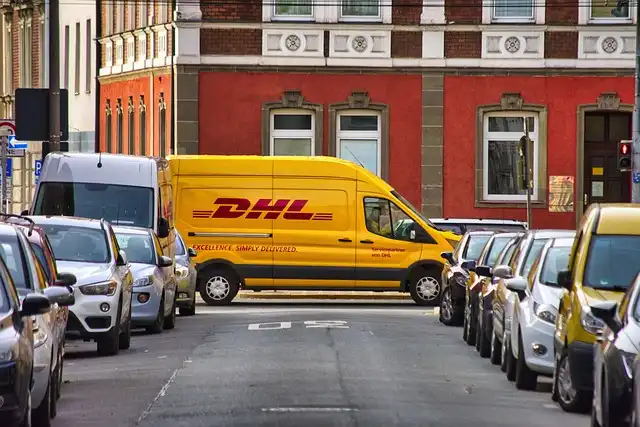BrightDrop Pause, Tariffs Impact Automakers, Waymo Gains Traction

GM pauses BrightDrop van production. Tariffs may significantly increase auto costs. Waymo robotaxis gain popularity via Uber in Austin, signaling autonomous vehicle growth. Structural change ahead.
Its BrightDrop electric van arm started as a separate brand however was folded under Chevrolet last year. The car manufacturer still just relocated about 1,500 of them in 2024, contrasted to the 13,423 that Rivian did.
BrightDrop Production Halt
The van is made in Canada. Due to both situations, GM is hitting time out on BrightDrop van production for at the very least 5 months.
In the EV globe, passenger cars often tend to obtain the most attention. Items like electrical delivery vans reveal significant assurance for decreasing discharges and prices in the commercial room. Currently, Rivian and Ford seem to be doing the best on that front.
That tale likewise keeps in mind that many automakers need to have at the very least an approximately two-month supply of cars and trucks not affected by tariffs that they can market today, so as a customer, you might not see any type of immediate price boosts. A number of car business have actually said that they won’t increase their prices whatsoever. At the very least, that’s what they state today.
Tariff Impact on Auto Prices
The Facility for Automotive Research Study, a Michigan-based not-for-profit think tank, thinks prices for automakers in the united state alone will boost by $107.7 billion. That includes $41.9 billion for Detroit car manufacturers General Motors, Ford Motor and Chrysler parent Stellantis.
The majority of people who simply drive their autos every day or acquire a new one every years or so never ever see this, however the automotive sector works off an international rules-based order. Safety and security guidelines tell the auto companies what they can and can not construct; the same is real for exhausts laws. And how the auto firms browse the next couple of months may well establish exactly how they grow over the following couple of years.
BCG anticipates tariffs to add $110 billion to $160 billion on an annual run rate basis in prices to the industry, which might impact 20% of united state new-vehicle market incomes, boosting manufacturing costs for both united state and non-U.S. suppliers.
The evaluation was based upon consumer e-mail invoices gathered by market analytics solid YipitData. The firm additionally discovered that Waymo, Alphabet Inc.’s autonomous lorry unit, has acquired 80% more driverless trips in its operating area in Austin in the first 27 days of using solution than it did in the early days of its San Francisco launch. An essential difference in the rollout is that Waymo trips are specifically readily available with Uber in Austin, while in San Francisco they’re readily available just with Waymo’s own application.
Waymo’s Autonomous Vehicle Success
“What we’re seeing currently is a structural change, driven by plan, that’s likely to be long-lasting,” Felix Stellmaszek, Boston Consulting Team’s international lead of vehicle and flexibility, informed CNBC. “This might well be the most substantial year for the auto sector in background– not just because of immediate expense pressures, yet since it’s requiring essential change in how and where the industry builds.”
Most individuals who simply drive their vehicles on a daily basis or purchase a brand-new one every years or two never see this, but the automotive sector sweats off a worldwide rules-based order. Safety laws tell the automobile companies what they can and can not construct; the exact same is true for exhausts laws. Tariffs, trade policies, technology trends, currency variations and various other factors all tell those automakers where they can develop and just how much they can bill– and it takes years upon years to establish that all up.
That tale also keeps in mind that numerous automakers should have at the very least a roughly two-month supply of cars and trucks not affected by tariffs that they can sell right away, so as a consumer, you may not see any type of instant rate rises. It’s an instance of just how any kind of car manufacturer not making automobiles below– and that’s a whole lot of them– might be cooked as the toll war continues.
Part of the factor BrightDrop sales are lagging in the U.S. is the relatively high price tag to closest competitors. Prior to incentives, the vehicles cost about $74,000. Ford’s E-Transit van with extended battery variety, for example, is $51,600– more than $20,000 less costly– even prior to applying incentives.
When it does, it’ll face stiff competitors from Google’s Waymo, which appears to be increasing in popularity in Texas’ capital city instead swiftly. Around 20% of Uber adventures in Austin are Waymos now.
Rules-Based Automotive Order Disrupted
Now, this rules-based order is completely up in the air many thanks to the United States’ government’s often-chaotic new toll plans. It’s mosting likely to be pricey in every sense of that word. And exactly how the car companies navigate the next couple of months might well establish just how they prosper over the next couple of decades.
Waymo robotaxis composed regarding 20% of experiences provided by Uber Technologies Inc. in Austin in the last week of March, underscoring just how consumers have heated to the self-governing solution considering that the companies introduced a collaboration early last month.
Business proprietors that are not utilized to taking dangers will not buy something they don’t recognize completely,” he stated. “In early 2020, when everybody was delivering things directly to their homes, this was an excellent vehicle for that market.”
Both analyses take into consideration the 25% tolls on imported automobiles implemented by Trump on April 3 in addition to upcoming levies of the same amount on auto components that are set to start by May 3.
We’ll have more soon here regarding the U.S. launching plans for the Volkswagen Group’s Cupra brand name. It’s an example of exactly how any type of car manufacturer not making vehicles below– and that’s a lot of them– may be cooked as the toll battle continues.
We’re speaking about brand-new tariff effect on today’s version of Important Materials, our morning roundup of industry and innovation news. Likewise on deck today: General Motors’ BrightDrop electrical van deals with an uncertain future, and Google’s Waymo appears to be a success for Uber down in Austin. Let’s dig in.
“If there’s a toll with Canada, how do you construct any kind of car of quantity there to be sold in the U.S.?” Fiorani asked. The economics, and the lack of billing framework, most likely made it difficult for the firm to find a footing in the U.S. market, Fiorani claimed.
1 Auto tariffs2 Automotive industry
3 Autonomous vehicles
4 BrightDrop
5 Electric vans
6 Waymo made
« Genesis GV90 EV: Luxury SUV, Design & Future PlansNext-Gen Mazda MX-5: Lighter, No Turbo, New Engine! »
